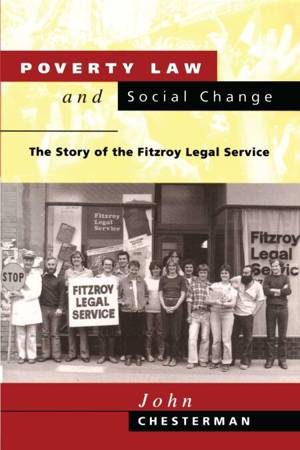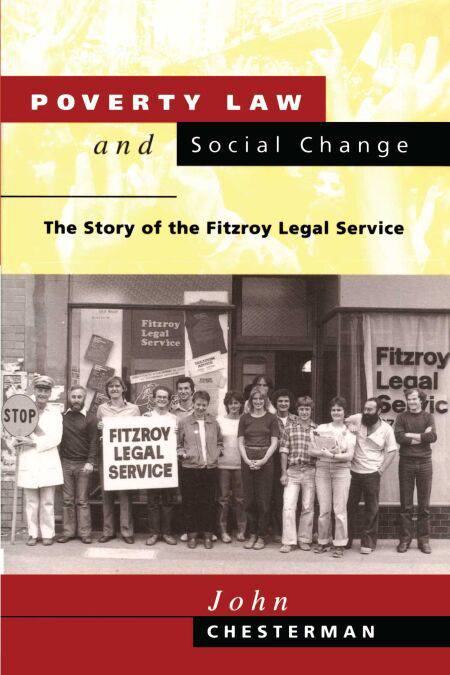
Je cadeautjes zeker op tijd in huis hebben voor de feestdagen? Kom langs in onze winkels en vind het perfecte geschenk!
- Afhalen na 1 uur in een winkel met voorraad
- Gratis thuislevering in België vanaf € 30
- Ruim aanbod met 7 miljoen producten
Je cadeautjes zeker op tijd in huis hebben voor de feestdagen? Kom langs in onze winkels en vind het perfecte geschenk!
- Afhalen na 1 uur in een winkel met voorraad
- Gratis thuislevering in België vanaf € 30
- Ruim aanbod met 7 miljoen producten
Zoeken
Poverty Law and Social Change E-BOOK
The Story of the Fitzroy Legal Service
John Chesterman
E-book | Engels
€ 14,53
+ 14 punten
Omschrijving
'Law for the Poor' and 'Lawyers for the People' declared the headlines that announced the opening of the Fitzroy Legal Service in December 1972. In a dingy town-hall basement in one of the poorest suburbs of Melbourne, this new legal service set out to do the unthinkable: to provide free legal advice to all comers.
Almost a quarter of a century later, under an equally radical Liberal government, the Fitzroy Legal Service has found itself cast in the unlikely role of a defender of the status quo against reforms that threaten judicial independence and restrict the availability of legal aid.
John Chesterman traces the evolution of the Fitzroy Legal Service from a thorn in the side of the legal profession to a valued contributor to legal debate. In this process, he provides an entertaining and perceptive account of the forces that have prompted legal reform in Australia from the early 1970s, particularly in the development of legal aid.
Almost a quarter of a century later, under an equally radical Liberal government, the Fitzroy Legal Service has found itself cast in the unlikely role of a defender of the status quo against reforms that threaten judicial independence and restrict the availability of legal aid.
John Chesterman traces the evolution of the Fitzroy Legal Service from a thorn in the side of the legal profession to a valued contributor to legal debate. In this process, he provides an entertaining and perceptive account of the forces that have prompted legal reform in Australia from the early 1970s, particularly in the development of legal aid.
Specificaties
Betrokkenen
- Auteur(s):
- Uitgeverij:
Inhoud
- Aantal bladzijden:
- 280
- Taal:
- Engels
Eigenschappen
- Productcode (EAN):
- 9780522865165
- Verschijningsdatum:
- 6/09/2015
- Uitvoering:
- E-book
- Beveiligd met:
- Adobe DRM
- Formaat:
- ePub

Alleen bij Standaard Boekhandel
+ 14 punten op je klantenkaart van Standaard Boekhandel
Beoordelingen
We publiceren alleen reviews die voldoen aan de voorwaarden voor reviews. Bekijk onze voorwaarden voor reviews.









